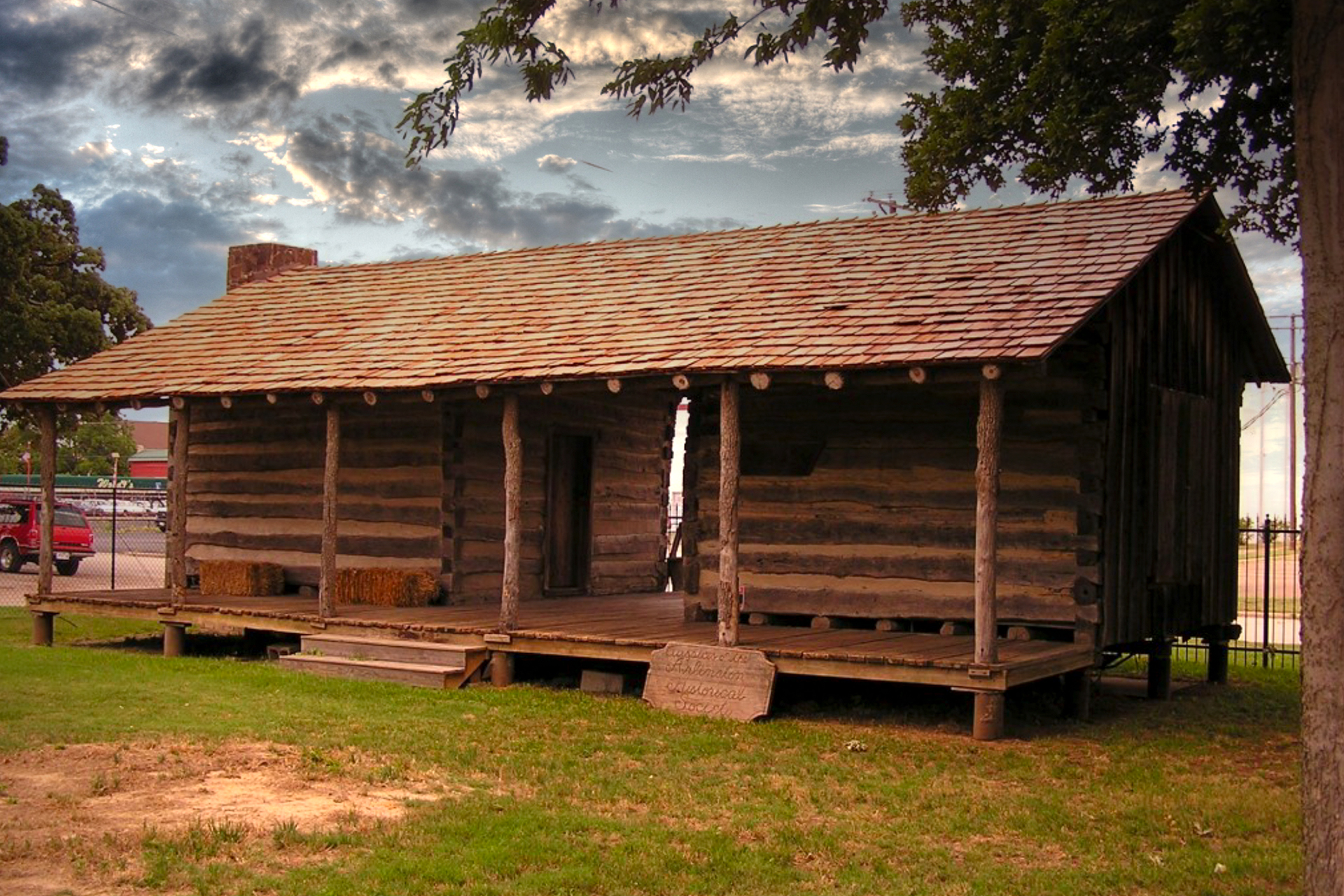
A Pioneer: Mrs. John H. Watson
This article appeared in the April 21, 1933 issue of the Arlington Journal. (Editor's notes are in parentheses. Mrs. John H. Watson died in Arlington three years after this article was written.)
To see Mrs. John Watson in her modern brick home, with the electric refrigerator, the telephone connecting her with the whole world, the radio with a twist of the dial brings to her music of the world-famed artists, it is hard to remember that this woman, in her more than three score years and ten, has seen the time when the best light to be had was a candle, matches were unknown, fire was kept in the fire place year round, and if one needed a new dress, the wool or cotton had to be carded, the thread spun, and the cloth woven. Twas back in 1812, August 18th, that the then Margaret Hutcheson was born in Ray County , in the eastern part of Tennessee. She went through the Civil War. It was not an uncommon sight to see both the Union and the Confederate armies around her home, and the boom of the canon could be heard in battle.
The heavy toll of the war, coupled with the freeing of the negro slaves, which meant such a heavy loss to people of that section, caused the late I. L. Hutcheson, Margaret's father, together with his two brothers, and their families to come to Texas, where already sisters and brothers and other relatives were living. The wagons were loaded with the household furnishings and other supplies, together with food, and the women and children rode in a comfortable spring hack. Several wagons, drawn by mules, were in the train. At night a big tent was spread and feather beds made down for the women and children, and the men slept in the wagons or stood on guard, as the Indians were at large and much to be feared at that time. Hot biscuits were cooked every meal in the "Dutch Oven," and so the trip was not so bad - not with hot biscuits to eat and feather beds to sleep on! As the company continued on its way, other families in covered wagons joined the caravan, until there were some twenty or more, all of them camping together at night, thus getting the added protection of the group.
At last, after six weeks, the trek was ended when Mr. Hutcheson and his brothers reached the home of their sister, Mrs. Elbert Day in Denton County. After visiting there for a couple of weeks, they went to Alvarado, Texas, passing through what is now Arlington, but at that time it was just pasture.
At Alvarado Mr. Hutcheson, who had been in the general mercantile business in Tennessee, again went into business. Margaret attended the Alvarado College under the late John C. Collier, well known through the State in church and educational circles. In 1869, she was married to Mr. Phil Sigler, and after being in Alvarado for a few years, Mr. Hutcheson decided to move to Johnson Station, bringing with him and his family, Mr. Stigler, his wife Margaret, and their little three months old baby daughter, now Mrs. Mattie Rankin.
Johnson Station (in the vicinity of what is now S. Cooper St. and Mayfield Rd.) at that time was the most thriving and wide-awake village between Fort Worth and Dallas. Being the station for the stage coach, which made daily trips to Dallas and Fort Worth, and bringing the mail, it was the post office and business center for all of the general mercantile business here. Mr. Sigler died, leaving his young widow Margaret with two little daughters, Mattie and Emma, who continued to live in the I. L. Hutcheson home until December 3, 1878, when Margaret Hutcheson Sigler was married to John H. Watson, at that time living with his father (P. A. Watson) in the Watson Community (just north and east of the present I-30 and SH 360 interchange). They moved to John H. Watson's farm, now owned by the W. T. Waggoner interests (associated with Arlington Downs), first living in a two-room log house with a big hall between. (This log house is now in Knapp Heritage Park - the P. A. Watson Log House, originally built 1855—see photo below.) In 1896, when they moved to Arlington to school their children, one daughter, Kate, died just before they moved to town.
John Hugh Watson (born 1838) died December 3, 1926, at the end of eighty-eight full years of service to his neighbor-and his "neighbor" took in the full sense of the story of the Good Samaritan: every man was neighbor. He served throughout the Civil War, was in prison, and escaped, and was severely wounded twice, carrying with him to his grave two Yankee bullets. A reporter from one of the city daily papers, in interviewing this pioneer shortly before his death, stated that his mind was a veritable abstract of places, events and dates, and he called over the entire roll of his Company in the Confederate Army for this reporter. He was active in the civic life of the community, in the schools, in the Masonic Lodge, and his pastor always looked to him as his main stay.
This couple saw Arlington grow from the undeveloped pasture land to the beautiful little town of today with its paved streets, brick business buildings, modern sewerage system, and electric conveniences.
When the John Watsons moved to Arlington for the purpose of schooling their children, a two-story frame structure, in the neighborhood of the present Christian Church (which was on the southeast corner of E. Abram and Mesquite Streets), comprised the entire school system of the town. Today we have our two Grade Schools and our modern High School; and best of all we have our North Texas Agricultural College, affording to the boys and girls of this community this higher educational advantage at a minimum cost.
The stage coach, bringing the mail, they have seen replaced with the powerful airplane that zooms its way through the air, just to the north of us, on its daily transcontinental trip with the mail.
One is reminded that Mrs. Watson and her husband have had the marvelous privilege of living through a period unparalleled in the world's history, and have seen more development in their life's span than was seen in several hundred years of previous times.
A full life they lived, this pioneer mother and father, and their influence will live for generations to come. Their son, Harold Watson, together with the four daughters-Mrs. Mattie Rankin, Mrs. Will McAskill, Mrs. Marie McKinley and Mrs. Horace Copeland of Grand Prairie-have taken their places in community life.
In reviewing good lives, as are these, and the fruits thereof, one is reminded of those to verses of Scripture: "All things work out for good to them that love the Lord," and "Eye hath not seen nor ear heard, neither hath it entered into the heart of man what God hath in store for them that love Him.'
